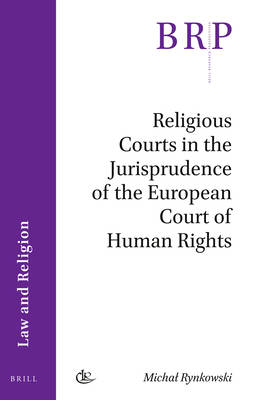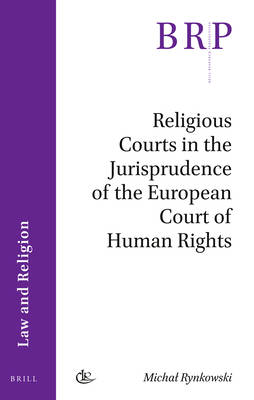
- Afhalen na 1 uur in een winkel met voorraad
- Gratis thuislevering in België vanaf € 30
- Ruim aanbod met 7 miljoen producten
- Afhalen na 1 uur in een winkel met voorraad
- Gratis thuislevering in België vanaf € 30
- Ruim aanbod met 7 miljoen producten
Zoeken
Religious Courts in the Jurisprudence of the European Court of Human Rights
Michal Rynkowski
€ 143,45
+ 286 punten
Omschrijving
Religious courts have been part of the European legal landscape for centuries. Almost all churches and religious communities have their own judicial systems, often composed of courts or tribunals ordered hierarchically. The aim of this book is to present cases from the jurisprudence of the European Court of Human Rights, in which a religious court was involved at the stage of domestic proceedings. The twelve cases in question originate from a number of European States, in which the applicants belonged to many denominations, although predominantly Christian. The Court of Human Rights has mainly been concerned with religious courts in terms of compliance with the requirement for a fair hearing by an independent and impartial tribunal under Article 6 of the European Convention of Human Rights and has come to various conclusions. The most recent judgment from September 2017, Nagy v. Hungary, and in particular many associated dissenting opinions, demonstrate that the matter is worthy of study, particularly in the contemporary context of religious freedom.
Specificaties
Betrokkenen
- Auteur(s):
- Uitgeverij:
Inhoud
- Aantal bladzijden:
- 78
- Taal:
- Engels
- Reeks:
Eigenschappen
- Productcode (EAN):
- 9789004416482
- Verschijningsdatum:
- 29/08/2019
- Uitvoering:
- Paperback
- Formaat:
- Trade paperback (VS)
- Afmetingen:
- 155 mm x 231 mm
- Gewicht:
- 68 g

Alleen bij Standaard Boekhandel
+ 286 punten op je klantenkaart van Standaard Boekhandel
Beoordelingen
We publiceren alleen reviews die voldoen aan de voorwaarden voor reviews. Bekijk onze voorwaarden voor reviews.











